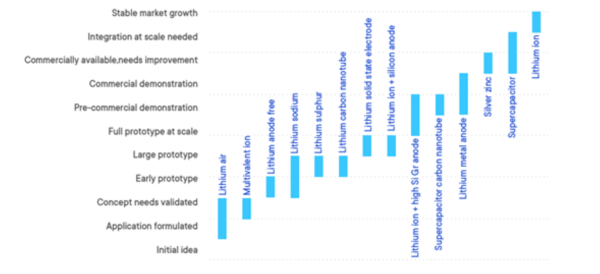IEA 4E EDNA: Efficient Demand-flexible Networks and Appliances Platform (Working period 2024 - 2027)
Short Description
The aim of the Platform is to monitor and evaluate the energy consumption of networked devices and to research and analyze opportunities and barriers for the promotion of energy efficiency measures. The results are intended to support policy makers in designing regulations for network connected devices and thus contribute to the energy efficiency of these devices.
The EDNA members have identified a number of key areas where international cooperation can be very helpful in achieving local policy objectives, and for coordinating international policy responses. These areas are:
1. Demand flexibility
The focus of this workstream is on the device level and on the policies that should be in place to provide convenience or other features, enable the seamless integration of devices into larger systems, and improve the energy efficiency. The proposed topics are:
- Task 0 - Scoping: Priorities and Partners
- Task 1 - Introduction: Review of the existing literature and discussion of the challenges and the global (political) vision.
- Task 2 - Global progress: Policies, pilot projects, and standardization efforts in different countries will be analyzed.
- Task 3 - Device functionality: the devices to target, the functions that those devices shall perform, and the use cases will be explored.
- Task 4 - System Architecture and communication: this task examines the system architectures and communication channels, e.g., via servers and APIs of the devices´ manufacturers, Internet/WLAN.
- Task 5 - Standardization and Testing Methods.
- Task 6 - Policy and Regulation: Ideally, a guide with sources of information will be developed including recommendations, suitable for outreach and cooperation.
2. Energy Efficiency of Data Centres
The goal is to create a robust international, policy-driven Data center energy efficiency program over the next 5 years. It will assess trends and policy options with experts, provide guidance on how to implement specific measures, and follow-up on their impact.
3. The "Total Energy Model" for calculating energy consumption of devices and networks
This EDNA task focuses on modeling the energy consumption of network connected devices. By measuring consumption and collecting data, the energy efficiency potential is assessed, and compliance with limit values is checked. Ideally, a new version of the Total Energy Model will be published, including information on data centers and demand-flexibility of devices, to show selected policy scenarios over a longer period of time.
4. Cross-cutting issues such as affordability and circular economy (Circularity)
Will be addressed in the EDNA research in parallel to the other main technical topics (especially topics 1 and 2 above), in conjunction with the possible relevant policy recommendations.
Austria is actively participating in all these four areas, and in particular in the definition and review of the workstream on Energy Efficiency of Data Centres, as well as on the dissemination activities.
Project Images
Terms of use: The pictures listed underneath the header “Project Pictures” originate from the projects in the frame of the programmes City of Tomorrow, Building of Tomorrow and the IEA Research Cooperation. They may be used credited for non-commercial purposes under the Creative Commons License Attribution-NonCommercial (CC BY-NC).
Participants
Australia (Operating Agent), Austria, Canada, Denmark, European Commission, France, Japan, Korea, New Zealand (Annex Chair), Sweden, Switzerland, The Netherlands, United Kingdom and United States of America.
Contact Address
ECODESIGN company engineering & management consultancy GmbH.
Dr. Adriana Díaz Triana
Schwindgasse 4/2
1040 Wien
E-Mail: diaz@ecodesign-company.com
Web: https://www.ecodesign-company.com/en/

